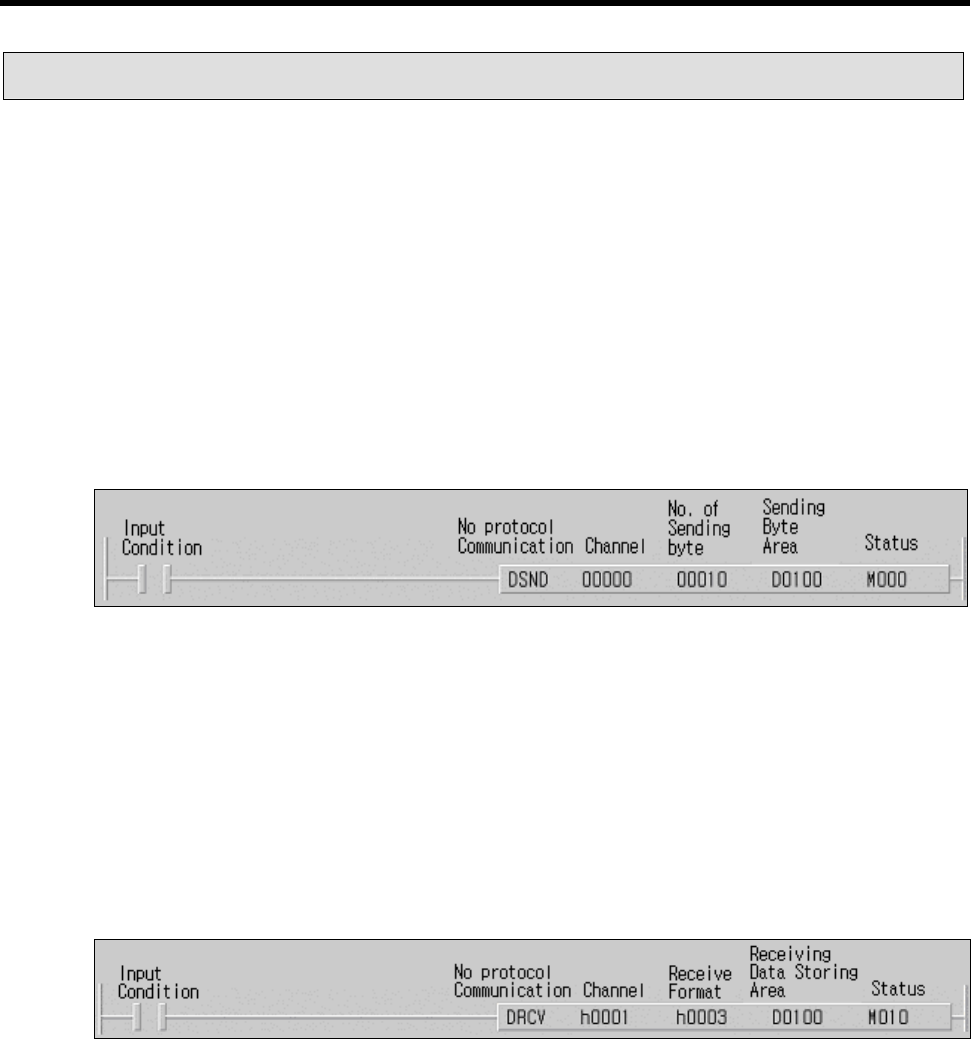
Chapter 8 Communication Functions
8-67
8.4 No Protocol Communication
8.4.1 Introduction
No protocol communication is useful when communication between MASTER-K120S main unit and other kind of devices
with user defined protocol is impossible. User defined protocol is very convenient when there are enough interval between
frames or a kind of frame is less than 16. But, When the kind of frame is greater than 16 or frames are continued without
interval, user defined protocol is not available.
When the kinds of frame are more than 16, they can’t be registered in parameter area, therefore MASTER-K120s can’t
transfer these frames. Also, if there are no interval between frame, MASTER-K120S can’t find end of frame.
To overcome these defects of user defined protocol, MASTER-K120S provide ‘No Protocol Communication ’.
In the No Protocol Communication, frames are designated by commands, not by parameter setting. So Max. 128 frames can
be designated when using this communication mode. This section explains No protocol Communication setting & usage.
1) Sending Data
• Command : DSND
• Sends stored data in designated device at the rising edge of input condition.
• Data and the number of character must be stored in designated device before they are sent.
• Operands
(a) First operand – Designates communication channel
(b) Second operand – Number of data to sending (Unit of byte)
(c) Third operand – Starting address of devices which stores sending data
(d) Fourth operand – Device address which indicates communication status.
2) Receiving Data
• Command : DRCV
• Saves received data to pre-defined receiving devices when designated ending condition is occurs.
• The ending condition can be designated by following two kinds.
- By number of character which is received.
- By designated last byte. It is useful when there is no interval between received frames.
• Supports hexdecimal type.
• Operands
(a) First operand – Designates communication channel
(b) Second operand – Designates receiving format
(c) Third operand – Starting address of devices which stores receiving data
(d) Fourth operand – Device which indicates end of receiving


















